Recap Korean Drama "The Law Cafe (2022)" Episode 5-6
Yuri follows him to the doctor because — unlike Jung-ho, who prefers to bottle up his emotions and let them ferment for 17 years like an aged wine — Yuri tackles her feelings like a linebacker and wrestles them into the ground until she has beaten all the answers out of them. So while Jung-ho lays prone on a hospital bed and a doctor places needles in his neck, he has the added torture of listening to Yuri monologue about her newly discovered feelings. But Jung-ho’s neck cramp bought him enough time to drop down from the clouds the kiss initially had him floating on, and once he returns to reality, he does what we all expected: he rejects Yuri.
Even though her assertiveness and perseverance is decidedly her, Jung-ho is thrown off kilter, largely because he’s secretly held onto his unrequited crush since high school and cannot relate to how quickly she acknowledged and confessed her feelings for him. Isn’t she afraid of losing their friendship? No she is not — largely because she trusts in her tenacity to hold on and not let go.

Following the rejection, Yuri redirects her emotions and goes after the civil servant who failed to remove Soo-ah and her sister from their abusive mother, but the resolution to the child abuse story arc flares up and extinguishes quickly and anticlimactically. Jung-ho once again steps in to help Yuri see the big picture: the blame cannot be placed on a single civil servant who hesitated to remove Soo-ah and her sister from her mother’s care without obvious signs of abuse to justify separating them from their only family.
The whole system is flawed, and thanks to Yuri’s (un)civil disobedience at the police station, she’s invited on television to discuss the issues and rectify her earlier misconception. And while she does call on the government to increase funding for the programs that have failed children like Soo-ah, there’s no satisfying resolution or suggestion that change will be implemented. So ultimately, the big takeaway following her television appearance seems to be that the airtime drummed up more business for her cafe.


And that influx in cafe patrons is how she acquires her next client: a woman seeking to reestablish her innocence after she was unjustly convicted of assault after fighting off her lecherous employer. The case itself is only marginally important to the plot because — like every other case featured in this drama — it primarily serves to open Yuri’s eyes to a personal or societal issue she was previously ignorant to. And in this instance, the topic at hand is sexual harassment and consent.
Although I’m not a fan of the rushed setup, I whole-heartedly appreciate seeing our leading lady question her own actions (i.e. the kiss she planted on Jung-ho without his consent) and have an open discussion about the proper way to pursue someone and not cross boundaries. In my opinion, this was a lovely exploration of the topic, not only from a societal perspective, but with how consent — or lack thereof — is often portrayed in K-dramas. I think there are a fair number of us — myself included — who often look the other way when it comes to the questionable actions of our favorite characters because we viewers are privy to more information than the characters are.

Case in point: we are aware that Jung-ho has been harboring a 17-year crush and is receptive to the kiss, but Yuri doesn’t have that knowledge. She initiated the kiss based on the assumption that Jung-ho liked her because he was nice and protective of her, but as Seo-yeon so bluntly reminds Yuri, “nice” is a basic requirement for being a decent human. Someone’s niceness shouldn’t be viewed as the green light to sexually assault them.
Yuri is wracked with guilt, so when Joon, Eun-kang, and the neighborhood ajummas encourage her to drink with them, the alcohol causes her to verbally vomit her pent-up emotions on her unsuspecting audience. Their mood dampened by her mopey behavior, the group turns her over to Jung-ho, not realizing he — and the fact that she broke Article 298 of the criminal code with him — is the cause of her current emotional state.
Jung-ho patiently — and I mean patiently — takes care of her, and in the morning, Yuri apologizes for her drunken behavior and for not getting his consent when she kissed him. But Yuri is not ready to let go of her feelings for him, so she asks if it’s all right for her to keep trying to win his heart — the correct way.

Just as their relationship seems to settle into a comfortable understanding, Dohan Construction rises to the forefront of the story when Jung-ho tracks down last week’s dog murderer, beats him to a pulp, and drags him to Pyun-woong’s posh apartment. (Yes! Justice for doggo!) There, Jung-ho warns his uncle to stay away from the people he cares about.
Although Pyun-woong cowers to Jung-ho’s violent and colorful threats, he does not obey Jung-ho’s command. Instead, Pyun-woong shows up at Yuri’s cafe, supposedly with a job offer. Jung-ho is on edge the whole time, and it’s very obvious that Pyun-woong’s retaliation visit is a pointed reminder for Jung-ho: Pyun-woong knows Jung-ho’s weaknesses. How would Yuri react, for example, if she knew Jung-ho was his nephew?

Pyun-woong’s visit somehow makes Yuri sick — seemingly from a mixture of anger and wounded pride — and while she recovers, she reads through the book that CEO Hwang gave her on the down-low. It’s one of Jung-ho’s novels that he secretly published under the Whistleblower pen name, and the book paints a story that’s similar to the fire that killed her father. Something written in the text compels her — fever, what fever? — to meet with one of her father’s former co-workers. He explains to her that the fire didn’t kill her father and the other workers. Instead, they died because the majority of the exits were blocked, which prevented them from escaping.
The news has a profound effect on Yuri, and when she runs into Jung-ho, she confesses that part of her doubted her father even though she knew Dohan Construction had shamelessly lied about his character. Jung-ho attentively comforts her in the aftermath of her emotional breakdown, showing her he loves her without verbalizing it, and Yuri points out how his actions clearly telegraph how much he treasures her. She just wishes he would stop being a coward about his feelings.
Something inside Jung-ho changes, brought on by the realization that even though Yuri may tilt at windmills and slay giants, she’s not always confident beneath the surface. That night, he updates his Korean Bar registration, and the next day he shows up at the cafe wearing a suit, prepared to take the cafe seriously.


Among the cafe’s visitors is 14-year-old KIM MIN-KYU (Kim Jung-chul), and even though Jung-ho supposedly has a photographic memory, he fails to recognize Min-kyu from the day before, when he and the rest of Team Cafe came to his defense after they witnessed some bullies push him into the Han River. Eun-kang, however, was particularly affected by the encounter, so when Min-kyu tentatively orders a coffee, Eun-kang pays special attention to the boy and knowingly directs him to Jung-ho.
Much to Jung-ho’s annoyance, Eun-kang sits in on his consultation with Min-kyu, who asks some very pointed questions about the laws protecting juvenile offenders — especially in cases of serious criminal offenses. Jung-ho, however, does not connect the dots, so he’s perplexed when Eun-kang unexpectedly hangs up his apron and ends his shift early to follow Min-kyu out of the cafe.


That night over dinner, Jung-ho breaks his silence and admits to Yuri that he likes her too, but for reasons he’s not ready to disclose, asks her to wait for him. Yuri is ecstatic, but she also lacks self-restraint. So she declares that they are no longer allowed to see each other at night because she’s not confident in her ability to keep her promise to wait. Hah!
Unfortunately, in the morning our lovebirds are not given much time to send each other secret flirty glances because both Min-kyu and Eun-kang are nowhere to be found. Suddenly, all the pieces fall into place, and Jung-ho realizes that Min-kyu is planning to harm his bullies before he turns fifteen and has to face the full weight of the law.
The fact that Min-kyu is probably with Eun-kang is extra worrisome, though, because Eun-kang’s sister was literally bullied to death, and Eun-kang went to prison after he locked her tormentors in a storage room and set it on fire. Although Eun-kang couldn’t bring himself to kill his sister’s tormentors and eventually opened the door so they could escape from the fire, he hasn’t let go of his anger, which he channels into helping Min-kyu. Unfortunately, his methods — albeit less murderous — are dangerous and unethical, and he doesn’t give Min-kyu much of a say in the matter.


After the bullies arrive at an abandoned warehouse where they’re set to meet Min-kyu, Eun-kang lights a fire and locks Min-kyu in a room with instructions to climb out the second floor window. From a nearby spot, Eun-kang uses his phone to film the bullies fleeing the fire and record Min-kyu jumping to safety; the video will serve as evidence to corroborate Min-kyu’s lie that the bullies trapped him and set the building on fire.
Yuri, Jung-ho, and Joon arrive on the scene before the police, which gives Jung-ho enough time to scold Eun-kang. Not only was his plan reckless and unlawful, but his criminal background is going to make the police question his story, even with the video “evidence.” And sure enough, when Eun-kang and Min-kyu feed the police officer the fabricated lie, the officer questions why Eun-kang would be wandering around late at night in an abandoned area all by his lonesome. For a few tensely charged seconds, the police officer stares him down, but then Jung-ho comes to his rescue and surprisingly provides Eun-kang with an alibi.

I’ve got to say, I don’t like the direction this last case took. I’ve been wanting to know more about Eun-kang, so I’m disappointed that our first real introduction to him was so sloppy. Not only were we fed a rush-job explanation for his mysterious prison stint, but his solution to Min-kyu’s bullying problem was just plain stupid. Yes, by all means, lock the bullied kid in a burning room and make him jump out a window because that’s soooo not traumatizing or dangerous.
The whole situation left such a sour taste in my mouth that I was actually disappointed in Jung-ho for backpedaling and lying on Eun-kang’s behalf, and that’s before I take into consideration the legal implications of the situation. Jung-ho, a former prosecutor well-versed in the law, just provided an alibi for an arsonist who — good intentions or not — set fire to a building with kids in it!

In general, this last case highlighted the ongoing problem I have with this drama: the “law” part of the whole law cafe schtick. All of the cases aim to pull on our heartstrings, but they fail at this task because we aren’t actually given enough time to connect with the characters and feel emotionally invested in their problems.
Instead, I’m more interested in what happens after each case wraps up, as our hero and heroine learn something about themselves or society around them. For example, this week I didn’t feel anything for the woman who was sexually harassed by her boss, but everything Yuri went through afterwards as she questioned her own actions towards Jung-ho was pretty damn groundbreaking for a K-drama.
This particular gripe isn’t enough to make me hate The Law Cafe because there are many fun things that I do enjoy, but I strongly suspect the story would have been better if Yuri had quit practicing law to run a normal cafe. We still could have had the nosy neighborhood ajummas, the flower boy employees, and the track-suited landlord to provide laughs and hijinks. And without a series of legal problems to resolve — and quickly — Yuri’s character could have reflected on serious topics and evolved more organically. Not to mention, without all the cases cluttering up the plot, maybe Kim Seul-gi would have gotten more screen time. This drama is really doing her dirty. #justiceforkimseulgi

Other Articles
-
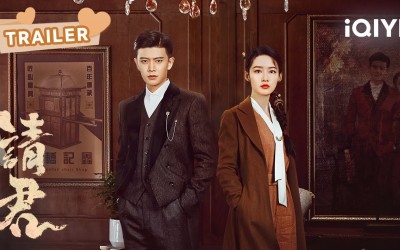
Recap Chinese Drama "Thousand Years For You 2022" Episode 25
-
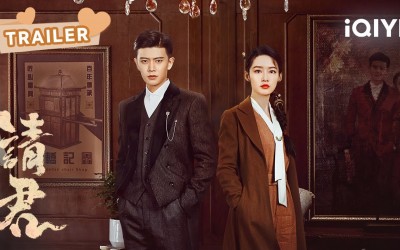
Recap Chinese Drama "Thousand Years For You 2022" Episode 24
-
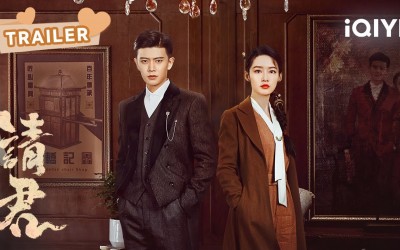
Recap Chinese Drama "Thousand Years For You 2022" Episode 23
-

Recap Korean Drama "Once Upon a Small Town" Episode 12
-
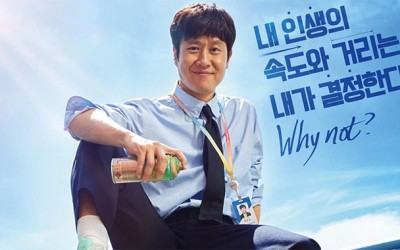
Recap Korean Drama "Mental Coach Jegal 2022" Episode 5-6
-

Recap Korean Drama "May It Please the Court 2022" Episode 4
-

Recap Korean Drama "May It Please the Court 2022" Episode 3
-
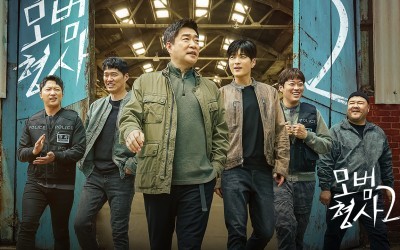
Recap Korean Drama "The Good Detective Season 2" Episode 15-16 (Final)
-
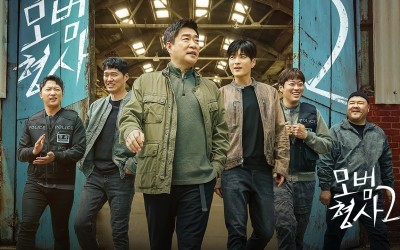
Recap Korean Drama "The Good Detective Season 2" Episode 13-14
-
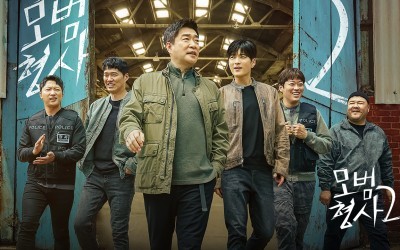
Recap Korean Drama "The Good Detective Season 2" Episode 11-12
-
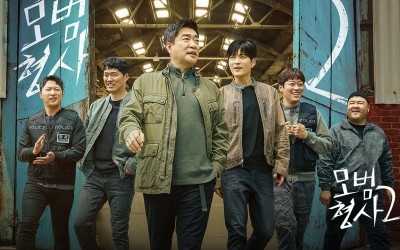
Recap Korean Drama "The Good Detective Season 2" Episode 9-10
-
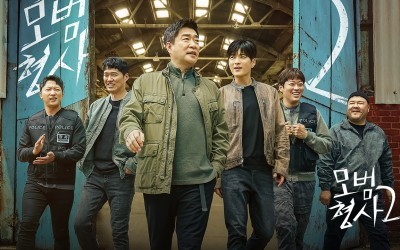
Recap Korean Drama "The Good Detective Season 2" Episode 7-8
Genres
- Accident
- Action
- Adventure
- Alien
- Amnesia
- Ancient legend
- Animals
- Animation
- Arthouse
- Artificial Intelligence
- Award Winning
- Based on a Comic
- Based on True Story
- Betrayal
- Biography
- BL
- Bodyguard
- Bromance
- Business
- Chambara
- Childhood
- Christmas
- Cohabitation
- Cold Man
- Coma
- Comedy
- Concert
- Conglomerate
- Conspiracy
- Contract Relationship
- Corruption
- Crime
- Criminal
- Curse
- Dance
- Deity
- Demon
- Detective
- Disability
- Disaster
- Documentary
- Drama
- Eastern
- Educational
- Entertainment
- Environment
- Erotica
- Espionage
- Exorcism
- Exploitation
- Fairy
- Family
- Fantasy
- Fashion
- Feminism
- Food
- Foreign
- Friendship
- Game Developer
- Gangster
- Geishas
- Gore
- Goryeo Dynasty
- Grudge
- Gumiho
- Harem
- Hidden Identity
- Historical
- Horror
- Hostage
- Human
- Hypnotism
- Idol Drama
- Indie
- Instructional
- Investigation
- Jidai Geki
- Josei
- Kidnapping
- Kung Fu
- Law
- legal
- Lesbian
- LGBTQ+
- life
- Love Triangle
- Mafia
- Magic
- Manga
- Manhua
- Martial Arts
- Mature
- Medical
- melodrama
- Mermaid
- Military
- Miniseries
- Misunderstanding
- Monster
- Murder
- Music
- Musical
- Mystery
- Mythology
- Nature
- Neighbours
- Noir
- Novel
- Omnibus
- One shot
- Parody
- Phobia
- Poison
- police
- political
- Power Struggle
- Prison
- Professional
- Programmer
- psychiatry
- Psychological
- Reality
- Reality Show
- Reality TV
- Rebellion
- Religion
- Remake
- Republic
- Resurrection
- Revenge
- Rich Man
- Robot
- Romance
- RPG
- Rural
- Samurai
- Scholar
- School
- Sci-fi
- Seinen
- Serial Killer
- Short
- Sismance
- Sitcom
- Slapstick
- Slice of Life
- Society
- Soulmates
- Sports
- Supernatural
- Survival
- Suspense
- Swordsman
- Taiga drama
- Teamwork
- Tearjerker
- Teen
- Terrorist
- Thief
- Thriller
- Time Travel
- Tokusatsu
- Tomboy
- Tragedy
- Tragic Past
- Transmigration
- Trauma
- Treason
- Triad
- Underworld
- Unrequited Love
- urban drama
- Vampire
- Variety
- Variety show
- War
- Warrior
- Web Series
- Webtoon
- Werewolf
- Western
- Witch
- Workplace
- Wuxia
- Yakuza
- Yaoi
- Youth
- Yuri
- Zombie

